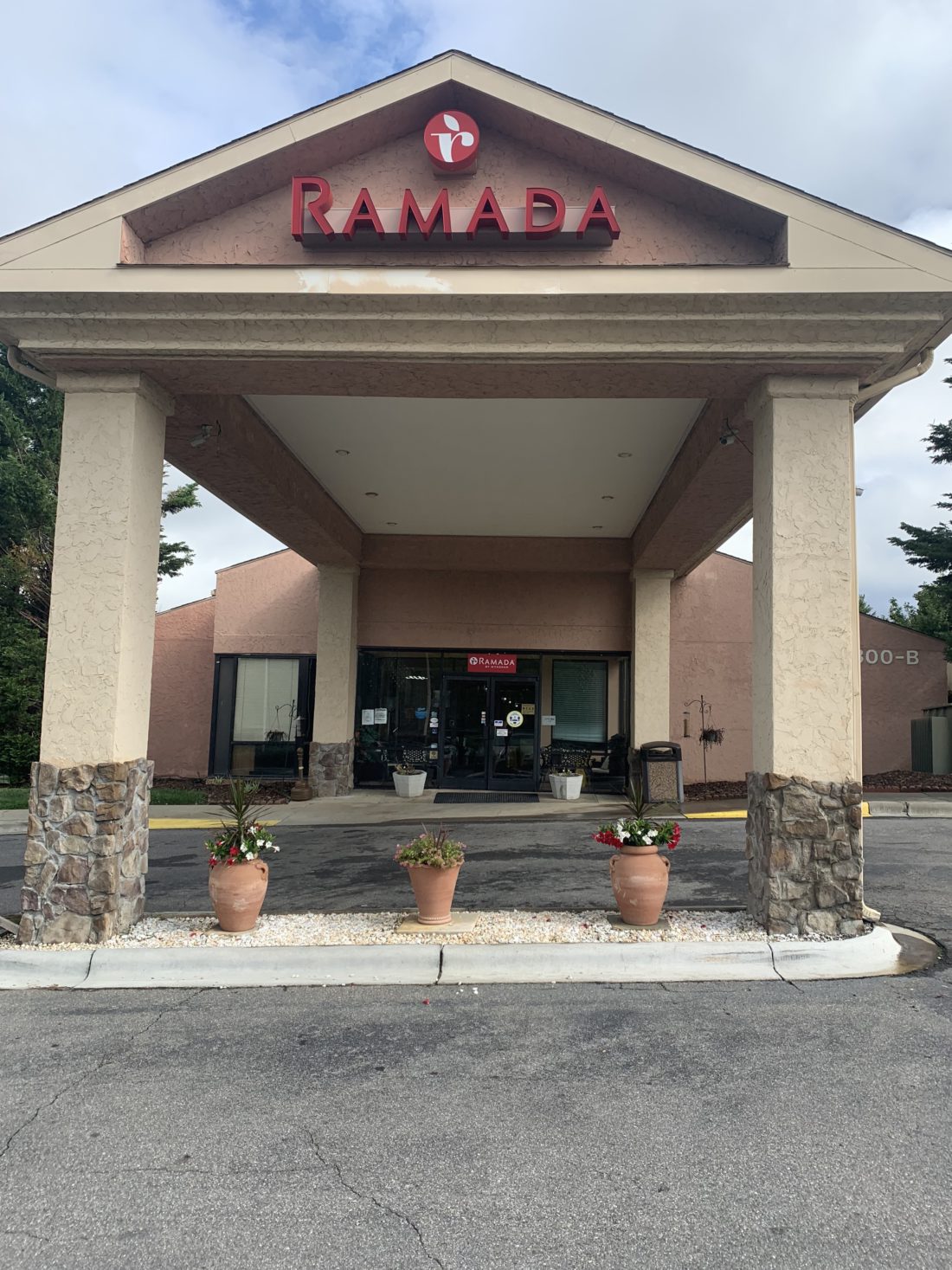Asheville City Council’s April 26 meeting brought a new wrinkle to the already shambolic process of establishing permanent supportive housing at an East Asheville Ramada Inn. In a 4-3 vote, members agreed to waive nearly $80,000 in payment the city had expected from California-based Shangri-La Industries, a private company Council had tapped in December to buy and redevelop the motel as affordable units for at least 100 homeless residents.
Asheville’s agreement with Shangri-La had followed shortly after the city’s effort to buy and convert the Ramada into a low-barrier homeless shelter fell through amid community concerns and funding problems. The proposal was announced Dec. 3, and the sole public meeting on the deal was held with one day’s notice Dec. 8. Council then approved transferring its purchase contract for the property to Shangri-La Dec. 15, with only Antanette Mosley opposed.
As part of that deal, Shangri-La had agreed to reimburse Asheville for $79,500 in due diligence costs the city had already spent during its pursuit of the low-barrier shelter. But as explained by Nikki Reid, the city’s community and economic development director, the developer had since been informed by the U.S. Department of Housing and Urban Development that the Ramada would require a full environmental assessment before it could be sold, a requirement that would delay the closing date by three months.
The current owners of the Ramada Inn, who had closed the motel in anticipation of the sale, asked Shangri-La for $250,000 in additional earnest money due to the delay, as well as $2,500 per day in lost operating revenue. The developer thus asked the city to waive the due diligence reimbursement to help cover the unexpected expenses.
Waiving the reimbursement, Reid said, would reinforce the city’s commitment to the project and encourage the seller to complete the sale. “The ability to waive is just another signal in partnership with this organization,” she continued. “If the deal doesn’t happen, we don’t get those funds anyway.”
Opposing the waiver were Council members Mosley, Sage Turner and Kim Roney. Mosley reiterated transparency and process concerns about how Shangri-La was chosen for the project that she had previously raised in December.
“My understanding is that we had someone in one department reach out to one of his friends and said, ‘Let’s make a deal,’” she said.
“One of the concerns that was frequently in my inbox was, ‘What happens if Shangri-La comes back for additional money because they can’t do what they’re saying they’re doing?’” added Turner. “And here we are: They haven’t even closed and are asking for money. It’s a little alarming.”
Resident and mayoral candidate Jonathan Wainscott was the only member of the public to speak during the public hearing on the waiver. He called the project “sloppy from the very beginning.”
“[The contract] happened in 6-10 days of just some quick phone calls. It’s hard for me to see a whole lot of due diligence in the process in the first place,” Wainscott said. “[The reimbursement] is just sort of a bonus fee that they should be paying because it got fast-tracked through the process to begin with.”
Meanwhile, Mayor Esther Manheimer said that Council should focus on the end result of the project: providing much-needed housing for Asheville’s homeless residents.
“I guess I have concerns about whether or not we’re committed to addressing homelessness in our community,” Manheimer said. “Maybe this Council will need to have more in-depth discussion about what we think is our lane, in terms of that work. Because if it’s not supporting permanent supportive housing, that needs to be clear.”
“I don’t want to be painted in a corner for not supporting permanent supportive housing,” Mosley shot back. “I don’t like the way this came up. We did it too quickly, in my opinion. We look sloppy, in my opinion. And I feel that my original gut instinct was correct, because we are here today because we didn’t do the appropriate due diligence earlier.”
Legislative agenda approved with occupancy, sales tax requests
Council members also voted to approve their 2022 Short Session Legislative Agenda, which aims to provide direction to the N.C. General Assembly on issues specific to Asheville. Among the requests from Council was an ask to reform Buncombe County’s occupancy tax, shifting more funds away from marketing and expanding allowable uses to include maintenance.
Asheville is also asking for authority to hold a referendum on a quarter-cent sales tax increase, with proceeds to be dedicated toward public transit. Currently, only counties are permitted to hold such referendums.
Sandra Kilgore was the only Council member to vote against any element of the agenda. She did not support the sales tax referendum request, saying that the tax would hurt small-business owners; Kilgore is currently engaged in a primary campaign against Democratic state Sen. Julie Mayfield, who has introduced a bill that would grant Asheville the referendum authority.
The Assembly’s short session is expected to begin Wednesday, May 18.




Watching the meeting (and subsequent discussion and vote), I was somewhat perplexed that *not one member* of council suggested negotiating a split of the $79K with Shangri-La as a mutually beneficial trade of Good Will for Good Faith. I believe that the city’s representative should have explored this option and gauged Shangri-La’s pain threshold and willingness to be a true partner moving forward. I agree with Kim Roney that it would have been nice to have a representative from Shangri-La present (or at least available via Zoom). Our nation was built upon the concept of compromise and bending, but not bending over.
I sincerely hope this small bump doesn’t forbode larger pot holes to come.
Great point, Mr. McGee! Funny that we have all these lawyers and real estate people in charge, and they so rarely offer wise and reasonable solutions.
A never ending money pit. Remember this when you vote for council and mayor. Quite possibly the worst we’ve ever had.
Love the way Wainscott continually calls out Manheimer for her BS !